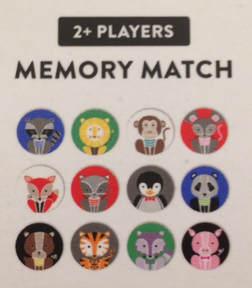 I was a big fan of the game Concentration as a kid. Do you know it? It’s old school. You put all these little cards face down on the table. When it’s your turn, you flip over two and see if they match. If they do, you get to keep them. If not, you flip them back over and the next person takes a turn. You have to pay attention to everyone’s turn, so you can remember where the matches are. The person with the most matches at the end wins. I was good at this game when I was younger. This game still exists. Now it is called Memory or Match-Up. I found a few new versions of it at the store, and I know there are online versions, too. It’s good exercise for the brain. But what does this card game have to do with writing and revision? Let’s see if I can match up these two subjects. I’m working on a new novel, and the other day I was writing a phrase and thought to myself, I swear I’ve already written this. I copied the key words of the sentence and stuck them in Find. Sure enough, I’d penned almost the exact line earlier in the manuscript. Even though I clearly had some love affair with this particular string of words, one of these lines had to go. In the case of this current writing project, I’m glad I caught the mistake early. Sometimes I don’t catch these sneaky repeated lines until well into my third or fourth drafts. A few even make it all the way to the published books before I notice them, and I’ve definitely seen them in other books I’ve read. A few weeks back I did a post about words that are repeated or used too much, like “look”. I also have an older post about removing unnecessary words like “really”, “very” and “actually”. What I’m referring to now, phrase repetition, is a little different than that. I think it happens when authors are trying hard to make a point about something and feel they need to reiterate it again and again. Maybe restating the line is by design. More often, it seems to happen subconsciously. I've found that phrase repetition happens the most in the internal thoughts of a character. Sometimes it’s a concept that’s repeated, which isn’t too bothersome but can get old if it’s done too much. When entire lines or passages are repeated verbatim, it’s annoying. 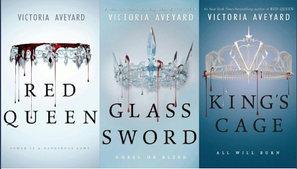 I recently finished reading King’s Cage by Victoria Aveyard. She is an exceptional author, and I do enjoy her series. As readers, we are inside Mare’s (the main character) thoughts, and I have to say her rambling on and on about her guilt, worries, fear, and anger gets long. In my opinion, the book could be a third shorter if Aveyard trusted that we understood what Mare was feeling. In this case, she isn’t necessary using the exact same words to explain things, but there are sentences and paragraphs that definitely made me think, You’ve already told me this, and I’d skip ahead. 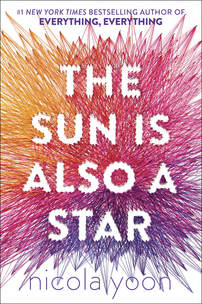 Sometimes repetition happens in descriptions of character appearance, setting, or maybe a quirk of a character. This doesn’t bother me as much. I’m okay for an author to remind me of that lopsided smile, the color of his eyes, the length of his hair. I’m currently reading The Sun is Also a Star. The author, Nicola Yoon, is often repeating descriptions of the characters, but it works in her book because they come at poignant moments or from different points of view. For example, at one point Daniel describes his own eyes, and a little later Natasha describes them similarly. What’s different is that he’s describing them as a fact, and she’s describing them tied to how they make her feel. These reminders not only aid the plot and add to the emotional intensity of the novel, but they also help me get back on track to picturing the main characters accurately. The key is making sure your repetition of description isn’t exactly the same each time and serves a purpose to the story. 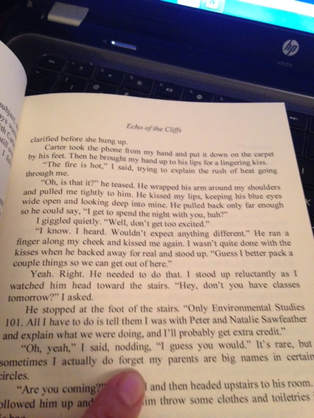 When I was in rewrites on my latest Juniper Sawfeather book, Echo of the Cliffs, I found a number of repetitive lines particularly having to do with June and her mother. I decided it was acceptable to repeat actions such as her mother always brushing June’s hair over her shoulder and how fast her mother reapplies makeup to freshen up. These are character traits that run through the entire series, things that both annoy and amaze June about her mother. On the other hand, three times I wrote something to the effect of “I sometimes forgot how important my mom was” when meeting people who were already familiar with her mother. Well, that made no sense. We know from the first chapter of the first book in this trilogy that Juniper’s parents are well known in the environmental activist world. Maybe June can be caught off guard once that someone would know her mother or father, but not three times. I had to cut all but one of those repetitive lines out. 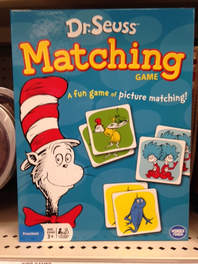 This is where the game of Concentration begins. I have to remember where the phrases are. I have to hunt through my manuscript. Find works sometimes for this task. Sometimes it leads me astray. It is definitely a challenge to locate those lines and if they match, pull them out. Unlike the card game, I sometimes have to replace them with something else, and I win when the book has no matching or repetitive lines remaining. What do you think about repetition of phrases in a book? When have you seen it work? Have you seen it fail? Do you struggle with this in your writing? I’d love to hear from you, so please leave a comment. While you’re here, feel free to scroll on down and read some other posts, visit the other pages on my website and read some excerpts, and join my mailing list. |
D. G. DriverAward-winning author of books for teen and tween readers. Learn more about her and her writing at www.dgdriver.com Archives
July 2024
Categories
All
|
Author D. G. Driver's
Write and Rewrite Blog
“There are no bad stories, just ones that haven’t found their right words yet.”
A blog mostly about the process of revision with occasional guest posts, book reviews, and posts related to my books.
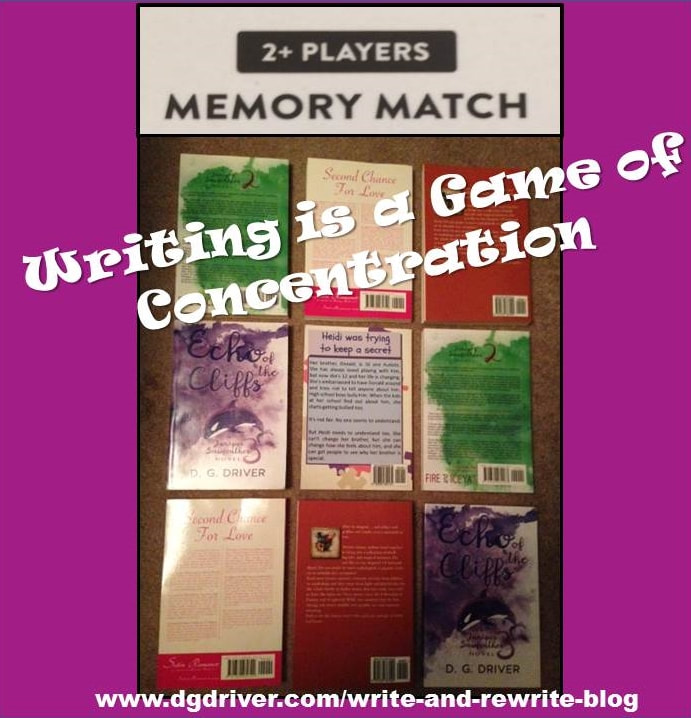

 RSS Feed
RSS Feed